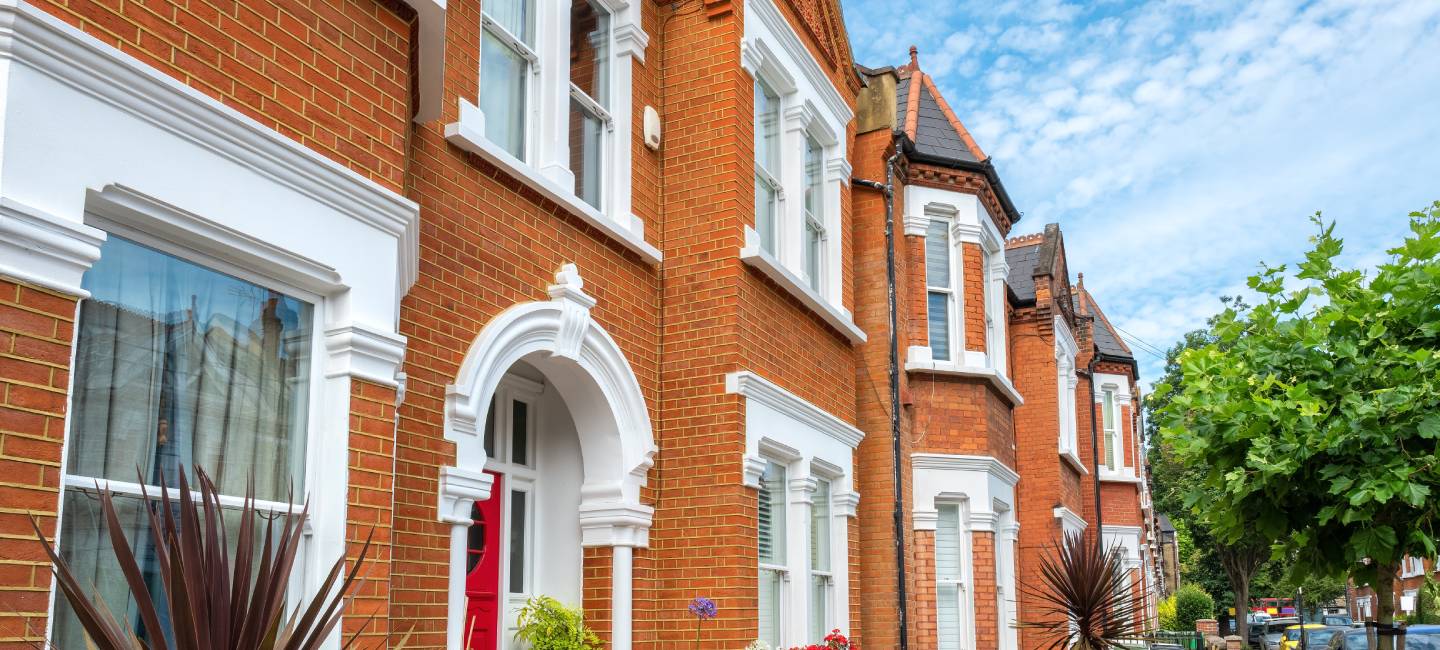

This article is for general guidance only and is not financial or professional advice. Any links are for your own information, and do not constitute any form of recommendation by Saga. You should not solely rely on this information to make any decisions, and consider seeking independent professional advice. All figures and information in this article are correct at the time of publishing, but laws, entitlements, tax treatments and allowances may change in the future.
Rising property prices, frozen allowances and plans to include pensions as part of your estate – all these mean that more people could find themselves with a future inheritance tax (IHT) liability.
Downsizing could help to release money now, but there are pros and cons to consider before heading off to your local estate agents. We often love our homes, but they can also be the main headache when it comes to inheritance tax planning, because for most people, their home makes up the bulk of their estate.
It’s important to think carefully about your own financial position, rather than making any assumptions based on news headlines or what you’ve been told by friends or family. “Before launching into any planning around the family home, the first step should always be to assess exactly what your IHT position is,” says Sarah Phillips, Private Client Partner at Irwin Mitchell.
Inheritance tax is charged at a 40%, but there are several allowances you have when weighing up your estate’s inheritance tax liability. For starters, everyone has a tax-free IHT allowance of £325,000, which is also known as the nil-rate band or IHT threshold.
On top of that, homeowners can take advantage of the residence nil-rate band. This gives them an additional £175,000 IHT allowance to use against the value of their home, providing it is left to children or grandchildren.
Married couples and civil partners can also transfer unused allowances. This means that, on second death, someone could pass on an estate worth £1 million without paying a penny in IHT, providing the property is worth at least £350,000 and it’s going to the kids.
Larger estates may not feel the full benefit of the IHT allowances. If an estate is valued at over £2m, the residence nil-rate band is reduced by £1 for every £2 over the £2m, with it lost altogether once it exceeds £2.7m if you are married (or after £2.35m if single).
Several factors are making IHT planning trickier. First, there’s property price inflation. Figures from the Halifax House Price Index show the average UK home was worth £298,083 in November 2024 – up 26.7% in five years.
While we all love to see our homes increase in value, the kicker from an IHT planning perspective is that the allowances have been frozen for years – the nil-rate band since 2009 and the residence nil-rate band since 2020.
Unfortunately, the Autumn Budget brought more bad news for anyone trying to keep the lid on an IHT liability. As well as announcing the nil-rate bands would be frozen for a further two years (until April 2030), Chancellor Rachel Reeves also lifted the IHT-exempt status of unused pension funds from April 2027.
This squeeze is leading homeowners to take action. A report by property firm Regency Living found that 49% of the over-50s it surveyed had an IHT liability once their pension was factored in, with 35% of respondents saying it would spur them on to downsize to a smaller home.

Downsizing is certainly an option if you’re keen not to leave a large IHT bill. “Selling up and moving to a cheaper property can release some capital locked up in your home,” explains Laura Bywater, Partner in Wills and Probate at JMW Solicitors.
“This may be particularly beneficial if it allows you to reduce an estate to below the £2m taper threshold so you can take advantage of the full residence nil-rate band.”
“This may be particularly beneficial if it allows you to reduce an estate to below the £2m taper threshold so you can take advantage of the full residence nil-rate band.”
There’s also a downsizing addition that can help you hang on to the full allowance if you move to a property worth less than the £175,000 (£350,000 for couples). There are conditions, but essentially the addition is designed to top up your residence nil-rate band to where it would have been if you had stayed put.
There are plenty of considerations, but the big one is that downsizing on its own isn’t enough to reduce your IHT liability. To do this effectively, you need to give away (or spend) the equity you release when you sell up.
For example, if you sold your home for £1m and bought one for £800,000, you may want to give away the £200,000 difference to get the money out of your estate. Be aware though that you must survive for seven years for the whole amount to be removed from your estate for IHT purposes.
There are some IHT planning options to make it easier. As examples, Emily Deane TEP, Technical Counsel and Head of Government Affairs at the Society of Trust and Estate Practitioners (STEP), points to some of the allowances and exemptions when giving away money.
“You could take advantage of the annual IHT gift exemption, where the first £3,000 gifted in each tax year is excluded from your estate,” she says. “You can also make a gift of up to £250 to as many people as you like. If you have 10 grandchildren, you could give them each £250, removing £2,500 from your estate.”
Weddings also bring some IHT breaks, with parents able to give £5,000 tax-free, grandparents £2,500 and anyone else £1,000. You may also be able to take advantage of gifts from income if the move has left you with some spare income.
.jpg?sc=max&mw=800&h=450&la=en&h=731&w=1300&hash=D6BF66DE5E4539FEF99C1C3A346BF39D)
The cost of the move can also be a major financial barrier when downsizing. David Hollingworth, Associate Director at L&C Mortgages, says these costs include fees for estate agents, surveys, legal and removal costs but also a chunky stamp duty bill.
“These can mount up and could be seen as giving up an amount that could otherwise be left to family and friends.” The scale of these costs can be seen in figures from home moving comparison site Reallymoving.
It found the average cost of selling up and buying a new home was £13,978 in 2024 – of which £6,250 is stamp duty. And the stamp duty bill is set to increase. Currently there’s nothing to pay on the first £250,000 of the property you buy, but this will reduce to £125,000 from April 2025.
As the new band (from £125,001 to £250,000) will attract a stamp duty rate of 2%, this will see an additional £2,500 of stamp duty added to the average cost of moving, taking the total average stamp duty bill to £16,478.
Inheritance tax planning with your home is notoriously tricky, but there are some options if downsizing isn’t for you. You could consider gifting a share of the property to reduce the value of your overall estate.
However, this is not straightforward. Phillips at Irwin Mitchell warns you would need to pay a market rent if you plan to stay in the property, and also accept the risks of someone else co-owning your home.
These risks go way beyond arguments over home décor. If the person you gave part of your property to goes through a divorce or bankruptcy, their share could become part of any settlement, potentially leaving you homeless.
Equity release is another option. “By taking out a lifetime mortgage you can reduce a future IHT bill,” says Hollingworth. “But again, the money will need to be spent or gifted to take it out of the estate.”
Either way, it’s best to seek specialist advice when it comes to inheritance tax planning. You may want to speak to a financial adviser who specialises in estate planning and inheritance tax, or a solicitor who specialises in these areas. Resources such as the Society of Later Life Advisers, Unbiased or the Find A Solicitor website can help you find one.


Provided by Tembo
Find out all you want to know about mortgages with expert advice.

From their first savings account to their first home, find out how your gifts can make the biggest impact for your grandchildren


Discover which properties are popular, reginal trends, and expert advice for movers.



Discover our easy ways to take control of your finances, from doing your tax return to assessing your savings.